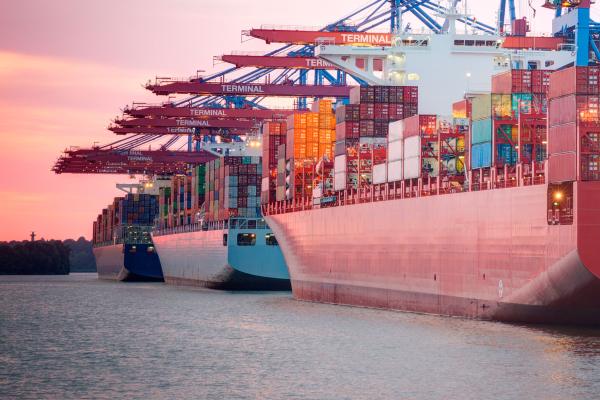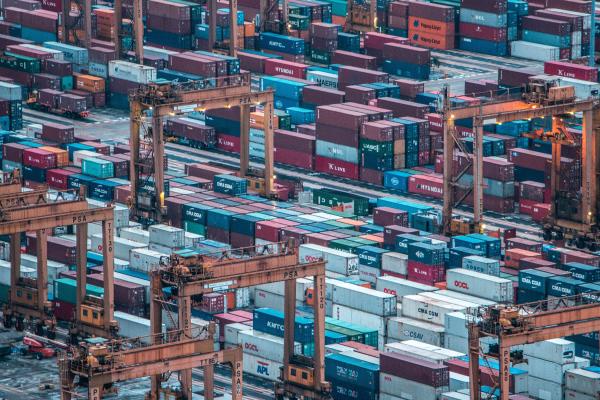Insights on International Trade & Investment
865 total results. Page 25 of 35.
On March 4, the Trump Administration announced the termination of India and Turkey as recipients of the Generalized System of Preferences, on grounds that neither country adheres to the program’s statutory eligibility criteria.
Three recent settlements between very different employers and the US Department of Justice have highlighted the need for employers to be mindful of the complex interplay between export control laws and anti-discrimination provisions in US immigration laws.

Economic sanctions turbulence continued virtually unabated in 2018 and into early 2019, making work for the sanctions experts both in and out of the US government.
“Today, Secretary of Commerce Wilbur Ross formally submitted to President Donald J. Trump the results of the Department of Commerce’s investigation into the effect of imports of automobiles and automobile parts on the national security of the United States.”
The US Government will begin accepting applications for new H-1B employees soon, on April 1st. So, it is time to survey potential new hires and current employees in other immigration categories (ex: F-1 OPT’s, TN’s, J-1’s, and L-1’s) to identify who will need H-1B visa’s, and start preparing for tho
When it comes to immigration worksite visits, preparation is critical. Unannounced worksite visits are on the rise, and employers should be prepared.
WASHINGTON, DC — Arent Fox LLP is pleased to announce the expansion of its International Trade and National Security practices with the addition of Partner David R. Hanke.

With the escalating political turmoil in Venezuela over the past few weeks, the Trump Administration responded – at least in part – with the imposition of additional sanctions.
Arent Fox LLP, on behalf of MedTrade Inc., Transpacific Steel LLC, and A.G. Royce Metal Marketing LLC, filed a lawsuit before the US Court of International Trade against the Trump administration that argues doubling tariffs on steel imports from Turkey is unlawful.
The US Trade Representative has announced the Trump administration’s intention of leaving companies subject to the 10 percent tariff rate under Section 301 List 3 without an exclusion process.
Headlines that Matter for Companies and Executives in Regulated Industries
Headlines that Matter for Companies and Executives in Regulated Industries
The US Trade Representative (USTR) has released the first batch of approvals for exemptions from the 25% tariff on Chinese imports under Section 301 List 1. Of the 10,768 List 1 exclusions requests filed, the USTR has granted 984 exclusion requests (9%) and denied 1,257 requests (12%).

The US Government has been under a partial shutdown since December 21, 2018, and it is anyone’s guess when the shutdown will end. Congress has recessed until this week, and there is little word of progress among the parties.
In a steady drumbeat of US sanctions targeting Iran during the month of November 2018, the Office of Foreign Assets Control has designated Iran-based financial facilitators of malicious cyber activity and, for the first time, associated digital currency addresses.

For more than two decades, a broad range of cross-border financial transactions between the United States, Canada, and Mexico were ruled by the 1994 NAFTA.
Action Alert: BIS Publishes List of Emerging Technologies That It Is Considering Subjecting to Unilateral US Export Controls. Your Company May Need to File Comments by December 19, 2018!
Back in May 2018, President Trump announced the United States’ intention to withdraw from the Joint Comprehensive Plan of Action (JCPOA) and re-impose secondary sanctions on Iran.
If the turbulence of 2018 caused business executives grief, the year ahead is unlikely to provide much relief. Foremost is the United States-Mexico-Canada Agreement (USMCA). If most political pundits are correct, the three governments will likely be able to ratify the USMCA in time to be in full fo
In the last hour of the last day of last month, with 30 minutes to spare, US Trade Representative Lighthizer met the US self-imposed deadline and formally sent to Congress the agreed-upon text of a US-Mexico-Canada Agreement, or USMCA.
The Trump Administration recently announced several major decisions, including: finalizing the List 3 products subject to additional duties and revealing its implementation schedule.
The United States and Mexico announced an agreement on August 27, 2018 regarding key issues that have been the focus of trilateral discussions among the US, Mexico and Canada for over a year.
All Bark and No Bite? State Department Explains Further the Waivers of the CBW Sanctions Against the Russian Government, Confirming that Many Exports, Even of National Security Controlled Items, Can Still Be Exported to Russia.
The US Administration announced that it would be imposing sanctions on the Russian Government under the Chemical and Biological Weapons Control and Warfare Elimination Act of 1991 (CBW Act) over the use of a “Novichok” nerve agent in an attempt to assassinate UK citizen Sergei Skripal.
International Trade Associate Leah Scarpelli will speak on Section 301 tariffs during a webinar for Plumbers Manufacturers International on August 9 at 11:00am ET.